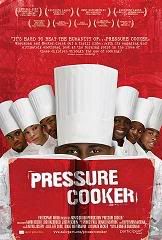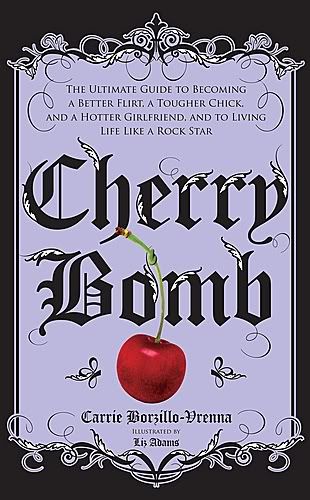First-time author Mitchel James Kaplan, By Fire, By Water, has lived and worked in Paris and Los Angeles as a translator, screenwriter, and script consultant. A graduate of Yale, he has served as adjunct professor of Literature Currently he resides in Mt. Lebanon, Pennsylvania.
Kaplan spent six years working on this historical fiction novel, which offers new perspective on the Spanish Inquisition and discovery of America. He shares his researching and writing process, as well as his journey to getting it published.
What prompted you to write By Fire, By Water?
The fact that Columbus’s first voyage from Spain to the New World, the expulsion of the Jews from Spain, and the re-conquest of Granada all happened at the same time and place, I found intriguing. I learned that Columbus had lived, for a time, with the Duke of Medina-Celi, who was a business associate of Luis de Santangel, the chancellor of Aragon. I dug deeper and found that Santangel was the single individual most responsible for the royal decision to sponsor Columbus’s voyage, and that he was a converso—a Christian suspected by the Inquisition of secretly practicing the Jewish religion of his ancestors. Later, I discovered that Santangel was implicated in the murder of the first inquisitor in Aragon. This astonished me. Imagine if one of the most powerful men in America today, a man close to the president, was accused of murdering one of the most famous religious figures!
It became obvious to me that the issues of identity and territorial expansion which formed the backdrop for Columbus’s 1492 voyage of discovery were profoundly personal matters for the chancellor of Aragon. I did not choose to write about Luis de Santangel. He insisted I write about him.
What was your writing and research process?
I traveled in Spain, of course. I looked at paintings in the Prado and throughout Europe. One learns a great deal from paintings, not just about details of dress and furniture, but about how people held themselves, how they thought of themselves, how they related to other humans, to animals, and to God. I also looked at medieval books and manuscripts. Having studied Latin for three years in high school, I was able to read some of them.
I spent a lot of time in libraries. Some of the research, but not a great deal of it, was done online. I also spoke with specialists, for example, people who work in maritime museums and who could tell me what was involved in setting sail in a fifteenth-century ship.
Speaking of ships, I remember visiting, during a trip to Stockholm as a boy, a 17th-century ship that had recently been dredged up. The smell of tar, the cries of the gulls. I guess that was research, too—before the fact…
How do you approach the blank page?
I lie down on my bed with a legal pad and a pen. I close my eyes and imagine every detail of the scene I’m about to write, paying close attention to the light, the odors, the sounds. Then I write down what I have experienced.
How did you go about getting it published?
I have a cousin who read my manuscript, loved it, and asked whether he could show it to a friend, a retired publishing industry executive. I said, “yes,” of course. Two months later, I received a call from the retired publisher, who told me that he too loved my manuscript and wanted to refer me to an agent. The agent had been quite successful with some non-fiction titles, but wanted to break into fiction. After reading my book, she signed me up enthusiastically… but then failed to sell it. So I contacted a few editors directly, and got much better responses, including an enthusiastic offer.
What was your favorite part of writing the book? The greatest challenge?
For me, putting my novel together was like playing with blocks. I wrote scenes. I knew that they fit together, but I was not always sure how. Sometimes I would destroy my block-castle and start all over. I enjoy the process of experimenting with different structures. The challenge, then, for the historical novelist, is to reconcile the best possible dramatic form with the historical chronology.
How was writing a novel different than/similar to writing a screenplay?
The most important difference was that that I wrote this novel for readers rather than moviegoers. The people I imagined reading my novel were not the same as the people I saw in movie theaters. Writing is, of course, communication. The way a writer thinks about his or her audience has a powerful effect on the writing itself.
Advice for screenwriters?
It would have to be similar to Frank Zappa’s advice to aspiring musicians: “Get a real estate license.” Other than that, read a lot of screenplays. I always found I absorbed much more by reading scripts than by watching movies. Oh, and it helps if your best friend is named Brad Pitt.
Advice for novel writers?
Don’t show your work to anyone until it’s ready. Don’t believe anything anyone tells you. At the same time, solicit and be open to criticism.
What do you know now that you wish you knew when you first started writing?
How to tell a story.
What’s next?
The book I am currently researching and starting to write is set in Rome and Judea after the crucifixion of Jesus. It examines the moral and social implications of polytheism and various forms of monotheism prior to the destruction of Jerusalem in 70 AD, and the birth of post-Temple Judaism and Christianity. As in By Fire, By Water, I want to delve into these questions with as little prejudice as possible, exploring the minds and hearts of the great, misunderstood characters who gave us our world: the emperor Nero, Saint Paul, Saint James, the High Priests in Jerusalem, Yohanan ben Zakai. The Jewish sister of Jesus and a Roman woman, who becomes a Jewish follower of Jesus, are also major characters.
Tags: Author Q&A By Fire By Water Mitchell James Kaplan Write On!












Comments are closed.
[…] Riley, The Hollywood Standard Mitchell James Kaplan, By Fire, By Water Lynn Ferguson, One-Woman Show: Heart & Sole Kate Mathis, Living Lies William M. Akers, Your […]